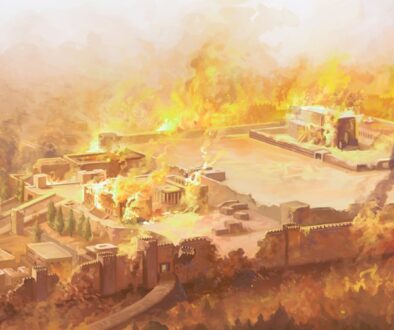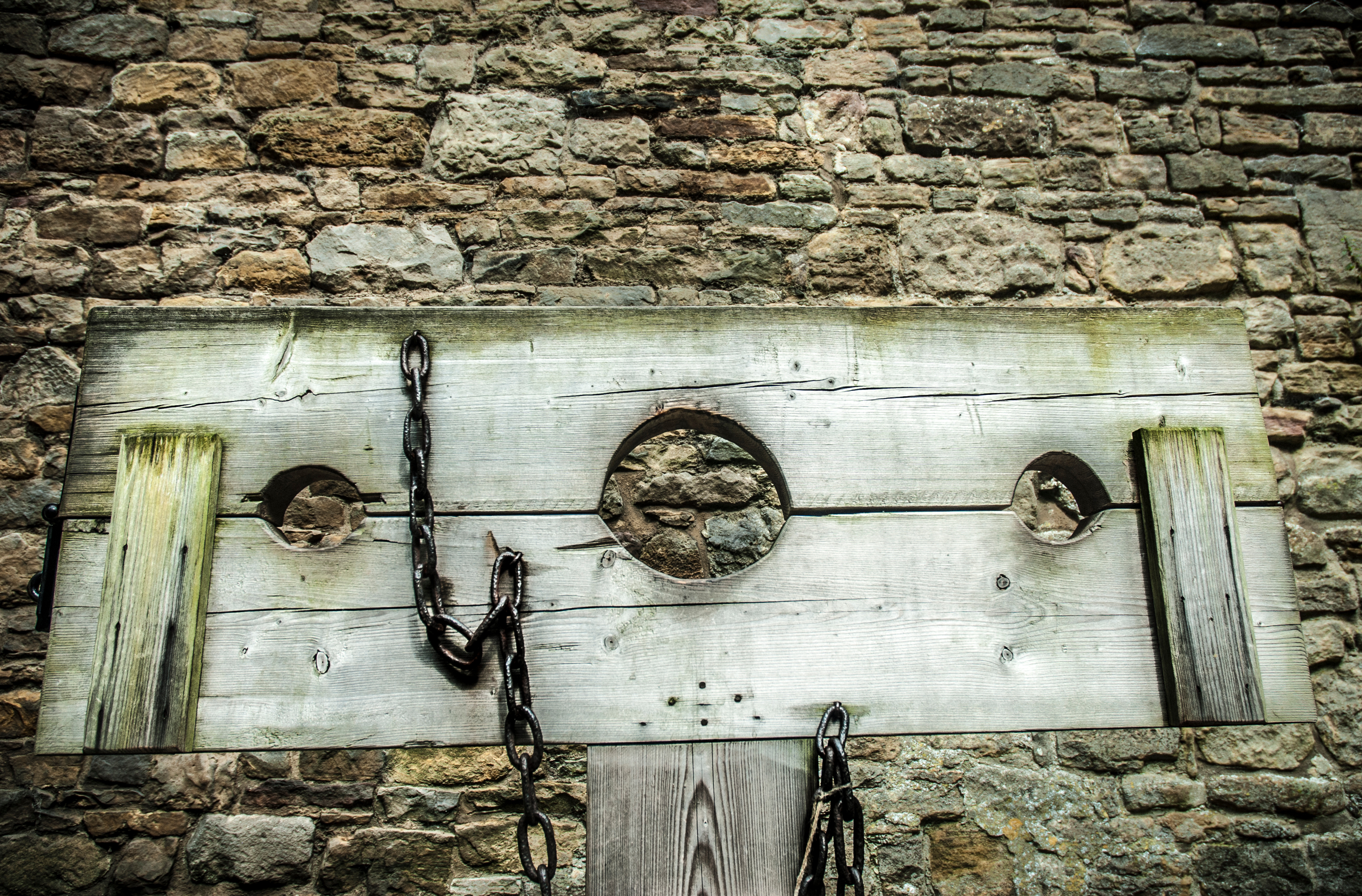Daniel 1 Strong Beginning

Daniel is taken captive with the first deportation of people to Babylon. He has a strong beginning by standing firm in the ways of the Lord.
When trying to set my story in the right place, I came across a problem. There is a difference in Jehoiakim’s story. First of all, Nebuchadnezzar came to Jerusalem the first time in the third year of Jehoiakim’s reign. The first three years were serving Pharoah Neco. When Nebuchadnezzar defeated him, Nebuchadnezzar came to Jerusalem, and Jehoiakim swore allegiance to him AFTER being bound in chains. Because we KNOW that he ruled eleven years, we know that he wasn’t taken away. Probably just seriously threatened. Jehoiakim then served Nebuchadnezzar for three years before beginning his rebellion and God sending all the nations to attack him. He died in Jerusalem and his son, Jehoiachin took the throne for three months. Then Nebuchadnezzar returned and took Jehoiachin captive.
With this said, and because I want to follow chronological order in story telling, I don’t want to move on to Ezra. Instead, I’m stepping backwards in time and looking at Daniel’s story. When everything is put together, his story will be woven into the fabric of the overall story. I don’t know if I will be able to do that with all the books of the Old Testament, but that is my goal.
We meet Daniel and his three closest friends. They are taken from their homes and carried away into a foreign country. Even in this foreign country, they find ways to honor the Lord their God. Let’s join them in their journey and let the Spirit lead us as we walk along with them.
♥ ♦ ♥
King Nebuchadnezzar is determined to make a name for himself. In his first year on the throne, he is sweeping through the region and defeating anyone who dares to stand before him. He has just defeated Pharaoh Neco and all his troops. Judah is next on his list. Jehoiakim served Pharaoh Neco as his vassal king. And any loyal servant of Pharaoh is a threat to Nebuchadnezzar. This is Jehoiakim’s third year on the throne.
As Nebuchadnezzar’s army surrounds Jerusalem, Jehoiakim meets with his advisors.
“This king just defeated Egypt! We have no chance of standing against him” bemoans one of the chief elders.
“One thing his defeat of Egypt did, is to free us of our obligation to pay the tribute” points out Jehoiakim.
“But what are we supposed to do now for protection? We don’t have any allies, and if he wanted to, Nebuchadnezzar could wipe us out” offers another elder.
“What if we offered to be his vassal?” asks Jehoiakim.
All the men sit and think about this before voicing their opinion. They are quiet so long, that Jehoiakim jumps in again.
“It wouldn’t be any different that being a vassal to Pharaoh Neco.”
With a collective sigh, they all agree that this is the best plan of action.
“Now that that is settled, I will send a messenger to his camp. I will invite him in so he won’t have to force his way in.”
A messenger is quickly dispatched. He carries an unconditional surrender from King Jehoiakim to King Nebuchadnezzar. Once outside of Jerusalem’s gates, he begins to tremble. He no longer has the walls of the city to protect him. He only prays that they treat him with the respect a messenger from the king is due. He takes a deep breath to steady his nerves and walks out to the enemy’s camp.
The first sentry calls him to a halt. “What business do you have here?”
“I have a message from my king to yours. It is of the utmost urgency.”
The guard whistles and another soldier comes to join the two men. “This man says he has a message for our great king. I will not leave my post, in case this is some kind of trick.”
The messenger throws his hands in the air. “This is not a trick! I promise!”
“Come with me” the second soldier commands.
The two men walk to the middle of the camp. The messenger keeps his eyes low, lest anyone accuse him of spying. When they reach the largest tent in the company, the soldier stops walking. “You wait here while I announce you. Don’t move from this spot.”
The messenger nods. He would be a fool to do otherwise in a camp this large.
The soldier carefully pulls back the tent flap. “My king, there is a messenger here from the king of Judah. He claims to be carrying a message from his king to you.”
“Show him in.”
The messenger is beckoned forward and ushered into the king’s tent. He bows low as soon as he is through the door. He waits for the king to speak.
“What is this message you bring me” demands Nebuchadnezzar.
“It is a message of unconditional surrender by King Jehoiakim. He is grateful for you releasing him from the king of Egypt, and asks that he might serve you instead.”
“I will go and see your king. I promise nothing though. You may return to him and let him know that I will be along within the hour.”
The messenger bows again before being led back the way they came. His tunic is sticking to his body, heavy with the sweat from fear, by the time he reaches the gates of Jerusalem. The watchman notifies the guard at the gate to allow him entrance. Once inside, with the door shut, the messenger would like nothing more than to sag against the door, but he has a message to deliver.
The guard of the king’s door announces the messenger when he arrives and he is ushered inside. He bows before his king and waits to be acknowledged.
“How did their king respond to my message?”
“He said that he would come and discuss it with you, but made no promises.”
“You have done well. You may go. Send word to the gate first, though, to let them know to admit him when he arrives.”
The messenger is MORE than happy to be released, even if it is only after completing one more task. As soon as the message is delivered, the messenger heads for the nearest inn that serves wine. He is looking forward to a goblet, or two, to calm his nerves. He has never before seen such a strong opponent, and that was without actually looking. “I PRAY that our king can strike a bargain with their king. I don’t believe we would withstand an all-out frontal assault” reasons the messenger.
Nebuchadnezzar waits just short of the full hour before presenting himself at the gate. With him hi has brought his body guard, Nebuzardan, the commander of his armies, and his best secretary. They are all flanked by six guards, three on each side. They make for an impressive display of power.
The guard lets them all in and wonders about his position. “Will there be room in his army for me?”
Two guards escort the contingent from Babylon through the streets of Jerusalem. The people gawk at them as they pass. Fear, awe, and questions all fill the hearts and minds of the people. Very few take time to bring these to the attention of their God.
Jehoiakim is standing in front of the bottom step of the dais when Nebuchadnezzar arrives. Jehoiakim bows low in honor and submission. Nebuchadnezzar inclines his head a little in response; demonstrating his position of superiority.
“Shalom, and welcome. We have heard of you mighty works, even in the halls of Jerusalem. I want to thank you for removing the yoke of Egypt from our necks. And assure you that we are loyal servants.”
“And why should I accept you as a vassal king? I have many already.”
“Judah is a country rich in agricultural resources and blessed by the God of heaven. Our goods alone would be of great benefit to you and your people.”
“Why should I not simply take what I want?”
“You may choose to do so, my lord. But then your forces would be stretched too thin to continue your campaign, as they would have to rule over the people in the land. I will rule them in your stead and provide you with the benefits of such a loyal peoples’ tribute.”
“I will require tribute now, as well as yearly. I will choose the tribute of today myself. The yearly tribute will be the same as you delivered to Pharaoh Neco.”
“As you command” replies Jehoiakim with a deep bow.
“It was told that you have a magnificent Temple for you God. King Hezekiah showed it to envoys who visited him from our land. I will see it now.”
Jehoiakim shows Nebuchadnezzar and those with him through the House of the Lord. Every time Nebuchadnezzar points at something in the Temple that he wants as his own, it is immediately handed over to him.
After choosing all he wants from the Temple and the king’s treasury, Nebuchadnezzar calls for the elders, the leaders, those who are learned, and the youths in training under them to be gathered together.
Nebuchadnezzar and Nebuzardan look over the people assembled. “You will be taken to Babylon as the first tribute from Judah. There you will serve me and the people in whatever roles you are given.”
Nebuchadnezzar turns to Nebuzardan and nods. Nebuzardan motions forward several soldiers who are holding chains. They move through the people wrapping chains around waists and wrists. Each person has one wrist chained to another person’s waist. They form human links in a long chain. Four chains are made out of the people, as there are so many.
There is no screaming or crying out for mercy. They know, without being told, what would happen if they did. Soldiers standing nearby with drawn swords speaks loud and clear to them. Jehoiakim watches from the sidelines as his people are bound and prepared for travel.
While this is going on, Nebuchadnezzar and Nebuzardan quietly make their way over to where Jehoiakim is standing. With a barely perceived nod, Nebuzardan grabs Jehoiakim and holds him fast.
Jehoiakim starts to resist, but one look from Nebuchadnezzar freezes him where he stands. Chains are brough over and looped around Jehoiakim’s waist. His hands are chained to his own waist. He will be going to Babylon as well.
“I swore to serve you. Why are you taking me away?”
“So you will understand what it costs if you cross me” Nebuchadnezzar says with cold steel eyes.
After all the people are chained together, Nebuzardan leads they out of the city. The rest of the people are huddled in their homes. They don’t want to give Nebuchadnezzar any opportunity to include them in the human processional.
Silent tears stain the cheeks of those being taken away. After the gates close behind them, the city erupts into wails of mourning! The people taken have left families and friends behind. They will not be forgotten.
The march to Babylon is long and slow. Nebuchadnezzar does not allow his prisoners to be mistreated. Yes, they are prisoners, but they have no value if they don’t arrive in Babylon healthy. Besides, these people did nothing to deserve this fate. It was their own king who chose to surrender. They are merely an object lesson for him.
As the people continue on the march to their new future, many begin to talk of the prophet Jeremiah and his prophecies. They see themselves in the throws of those prophecies.
“It is because we turned to other gods as a people.”
“We were warned and we did not listen.”
“Do you think we will die in captivity?”
“I will serve the Lord no matter what the cost” is vowed by a few. Those that had already been serving the Lord in the face of the current climate in Judah were the strongest in their commitment.
Nebuchadnezzar and those with him arrive in Babylon two months after leaving Jerusalem. The people gape openly at the marvels there. Building projects seemed to occupy a quarter of the city. One such project was an outer wall being added as protection to the already significant inner wall.
“I have a feeling that many Israelite backs will soon be added to the work force” whispers one of the captives.
“I wonder how they treat their slaves. Will this be anything like our fathers’ time in Egypt?”
“I suppose all we can do is wait and see.”
Nebuchadnezzar returns to his palace and begins making plans. Jehoiakim is taken to a cell in the palace. It is not a dungeon, but neither is it offer him free reign to move about in the palace. The people of Judah are parceled out to the different projects needing workers.
Nebuchadnezzar realizes that he will need Israelites who can be interpreters between his people and theirs. “Several people should be trained in our language, culture and history. This way, they can act as intermediaries between the peoples” Nebuchadnezzar tells Ashpenaz, his chief eunuch.
“A very wise plan, my king. What is your command to see it done?”
“Bring some of the people of Israel, both of the royal family and of the nobility, youths without blemish, of good appearance and skillful in all wisdom, endowed with knowledge, understanding learning, and competent to stand in the king’s palace” (Daniel 1:3-4a). “Teach them the literature and language of the Chaldeans” (Daniel 1:4b). Nebuchadnezzar paces while he is thinking. “You will be responsible for their welfare. They are to eat from the king’s table and drink the same wine. Train them well for three years. And then bring them individually to stand before me. I will judge their worthiness to remain in such honored positions.”
After sending Ashpenaz off on his mission, Nebuchadnezzar takes the items he took from the House of the Lord and brings them into the house of his god. He sets them up as trophies and display pieces. Some of the more beautiful cups, he chooses to use as his own.
Ashpenaz singles out the groups Nebuchadnezzar told him to choose from. The royal family, the elders, and the youths who did not have a spot or blemish on them. From these groups, Ashpenaz chooses 100 young men to train up in the ways of Babylon.
Among those chosen are four close friends who have followed the Lord with all their hearts, all their lives. They are among those who swore to remain faithful to the Lord, no matter what. Their names are Daniel, Hananiah, Mishael, and Azariah.
“What do you think they want with us” asks Azariah.
“I’m not sure. They seemed to be pretty strict in their choosing.”
“Don’t worry. Our God will watch over us, wherever they send us” Daniel reminds the group.
All heads nod and every trace of fear leaves. All that remains is faith in the God of Israel, determination, and curiosity.
The whole group is brought into the palace into a special room. It is HUGE and has couches along all the walls. When everyone is in the room, Ashpenaz claps his hands for their attention.
“My name is Ashpenaz. I am the king’s chief eunuch. You have been brought here to be trained in the ways of the people of Babylon. To learn their language, their culture, and study the literature of this great nation. You will be under instruction for three years. At the end of that time, you will stand before the king and he will judge your worthiness to serve in supervisory positions.”
Ashpenaz looks around to ensure that his audience is following along. Pleased with what he sees, he continues.
“You were chosen first of all for your fitness. To maintain that fitness, you will each receive a portion of food from the king’s table. You will eat what he eats and drink what he drinks.”
Daniel’s spirit rises up within him to protest. “What if the meat has been sacrificed to idols? How do we know if it is prepared according to the Laws of our God? I cannot maintain my faithfulness to the Lord by compromising straight away. I will have to address this with the king’s eunuch as soon as possible” he tells himself.
Daniel returns his attention to Ashpenaz. It hadn’t wandered long, so he didn’t miss anything of importance. “You are also among the most skilled in wisdom and understanding, as reported by those in authority over you, among your fellows. These are traits the king believes will serve him well. He requires those who can speak both languages, understand issues that arise, and return with sound solutions regarding interactions between your people and the people of Babylon.”
Some of the young men begin to look ‘puffed up’ with all the praise being showered on them. Ashpenaz notices them right away and files their faces in his memory. “They will need watching” he tells himself.
“For the first year, you will live in this room. You will take your meals here or in the garden, when weather permits. The couches are for you to sleep on. This is also where you will receive your instruction.”
“At the end of the first year, you will be evaluated on your progress. Those not meeting the standard of development will be returned to the slave market and sold for another purpose. Those who do meet the standard will be given housing nearby in which to live. You will continue to receive instruction in this room six days a week. Your abilities will be judged throughout that second year and you will be shifted into the best path for your skills during that time. In the beginning of the third year, you should all be placed into apprenticeship rolls to complete your education and prepare you to stand before the king at the end of your third year.”
Ashpenaz’s voice takes on an edge as he begins his final instructions. “Each of you is expendable if you choose to rebel or decide not to work. I will tolerate NO sloth or rebellion.”
After the instructions are complete, Ashpenaz gives all the young men new names. Names that are Babylonian, not Hebrew. “Daniel he called Belteshazzar, Hananiah he called Shadrach, Mishael he called Meshach, and Azariah he called Abednego” (Daniel 1:7).
Now that everyone is settling in, Daniel takes his three friends off to a quiet corner. “I cannot defile myself with the king’s food and wine. I do not know if they were prepared according to the Laws of our God.”
“I too want to stand with you” says Mishael.
Azriah and Hananiah both echo Mishael’s resolve.
“What are you going to do? You have to eat something” says Azariah.
“I’m going to pray for the Lord’s favor right now. I will need it when I approach Ashpenaz.”
The four friends gather close and ask the Lord’s favor and wisdom for Daniel. “Lord God of Abraham, of Isaac, and Israel. You are God over us as well here in this foreign land. We want to obey Your Laws and hold fast to Your commandments even in this place. We have concerns regarding the food we have been commanded to eat. Daniel has resolved to address our concerns with those in authority. Give him the words to say and the spirit in which to present his concerns to those in authority over us that they may allow us to remain faithful to You and Your commandments.”
After completing their prayer, the three friends follow Daniel as they walk over to Ashpenaz. Daniel will be the spokesman for them all.
“My lord, may I speak with you on a matter of great importance to me?”
“Already? What concerns could you have already?”
“My lord, have you heard of the God of Israel, and how He commands His people to follow statutes that He laid out long ago?”
“I have heard tell of Him.”
“Several of the statutes that our God has given us deal with how we prepare our meals and the foods we eat. If I were to eat the food from the king’s table and drink his wine, I would be disobeying my God; I would be defiling my spirit.”
“The king’s food is not poisoned or dangerous.”
“I’m certain that it is excellent food. Food fit for a king. But my God forbids me to eat it.”
“I understand your concerns, but hear mine as well. ‘I fear my lord the king, who assigned your food and your drink; for why should he see that you were in worse condition than the youths who are of your own age? So you would endanger my head with the king’ (Daniel 1:10).”
“Test your servants for ten days; let us be given vegetables to eat and water to drink. 13 Then let our appearance and the appearance of the youths who eat the king’s food be observed by you, and deal with your servants according to what you see” (Daniel 1:12-13).
All of Daniel’s friends indicate that they will stand with Daniel in this challenge.
“All right, but if I see before the ten days are up that you are becoming sickly, I will insist that you eat what has been provided by the king.”
“We will abide by your decision.”
As the days march on, Daniel and his friends eat only vegetables and drink water. Their counterparts eat massive amounts of meat, sauces, and drink much wine. They have not had such food in all their lives and they make the best of it!
Ashpenaz is keeping a close eye on Daniel and his friends. They don’t seem to lack energy after their meals, like the other youths do. They are NEVER drunk. The same cannot be said for the rest of the youths. They complete all their lessons quickly and correctly. And they simply look healthier than the other youths. They even put on muscle weight, where the others put on belly fat.
Ashpenaz calls Daniel to him on the tenth day. “I never would have believed it had I not seen it for myself. It may be the food, or it may be a blessing from your God for following His statutes. I will change all the youth’s food to match yours.”
The next meal, when the young men come to the tables, there are a LOT of questions. “Did the king change his mind about feeding us?” “What happened to the wine?” “Is something more coming later?”
Ashpenaz answered all their questions with ease and authority. “This is to be your new portion. Vegetables and water. It has been proven to me that it is healthier for you than what you were previously eating and drinking. Besides, you cannot get drunk on water.”
With that, it is settled. There is no complaining allowed. And the change in diet begins to show good results right away. Even the youths notice a positive difference in how they feel. No longer are they sluggish, and NO ONE is ever drunk.
While Ashpenaz is dealing with the young men, Nebuchadnezzar turns his attention back to Jehoiakim. It has been two months since he was imprisoned in the room. He did NOT eat from the king’s table. Nor does he receive the vegetables that the youths do. He receives only what the lowest servants eat. Nebuchadnezzar wants him to remember this time well. And he doesn’t intend for it to last forever.
Nebuchadnezzar has Jehoiakim brought before him. “Have you enjoyed our hospitality?”
Jehoiakim is afraid to answer. If he speaks the truth, he may incur Nebuchadnezzar’s wrath. If he says he ‘enjoyed it’, Nebuchadnezzar may give him more time in the cell.
“I see you are speechless. That is a good thing. It means that you are considering MY concerns and trying to ‘please’ me. That is the kind of vassal king I can use. One I can command and count on. Know this though, your treatment these last two months has been VERY mild, compared to the treatment you will receive should you cross me.”
Jehoiakim nods but still remains silent. He has no idea what to expect.
“I am returning you to your people. Obey me and live. Disobey me…”
Jehoiakim finally finds his voice. “I will be your faithful servant in all things.”
“See that you do.” Nebuchadnezzar snaps his fingers and his bodyguard, Nebuzardan, comes forward. “Return King Jehoiakim to his throne in Jerusalem.”
Nebuzardan bows and motions for Jehoiakim to follow him. The two go to a waiting chariot. Once they have left the city gates, Jehoiakim breathes a sigh of relief. Nebuzardan notices.
“Do not ever forget this visit. Remember that you are always being watched.”
Jehoiakim does not breathe easy again until he is in his own bed chambers. Once the door is shut, he falls to his knees and weeps. He is weeping from relief, gratitude, and fear as well. “What have I gotten myself into” he asks when he can finally think again.
Back in Babylon, the first year of training for the young men passes with intense studies in mathematics, language, and science. The ‘cleaner minds’ grasp the concepts quicker than anyone expected. Even with everyone doing better than expected, Daniel and his friends eclipse their classmates. None is dropped from the program. And Ashpenaz receives praise for his hard work with the youths.
By the beginning of the second year, the young men have formed small groups among themselves and moving into housing outside the palace is made simpler. Daniel and his three friends share a house together. They are all set to begin their second year.
(to be continued)
We will pick up in year two next time. There is no biblical evidence of Jehoiakim being taken and returned to Jerusalem. This is the only possible scenario I can come up with to reconcile the writings of 2 Kings, 2 Chronicles, and Daniel. We are simply missing some details, which is NOT an uncommon occurrence in such a long history.
I’m curious who held Judah together in the absence of their king, for however long it was. I have this same story regarding King Manasseh. We know that he was taken prisoner for some time. He came back a changed man. With Manasseh, the people still had the elders. When Jehoiakim was taken, the elders were taken as well. So, who was running the kingdom?
I’m impressed by Daniel’s character more than anything else in the story. He had to have great faith in God to even consider approaching Ashpenaz. Daniel was in no position to be making demands or even requests. He wasn’t a guest of the king, but a slave to be trained for a purpose. And those in authority had done this job many times before. Ashpenaz could have told him so and smacked his concerns to the ground. What would Daniel have done at that point? Was he as strong then as he is later on? Later in his life, he outright defied the king’s order in favor of honoring God. The consequences could not stop him from following the Lord’s command. But that is a story for another day. Young Daniel would grow into that conviction because of success stories like this one. His God was faithful!
Father God, You ARE STILL faithful! No matter where I walk, when I seek YOU first, You take care of the rest of the details. That does NOT mean that everything turns out MY way. I still have to back up and try again at times. I also have to accept that, some doors, You actually shut. That too is Your faithfulness! Putting things that can hurt me in places I can’t reach. THANK YOU for looking out for my curious hands. Keep my curiosity focused on learning more of You instead of looking for ways around things You have told me to stay away from.’[;l3




